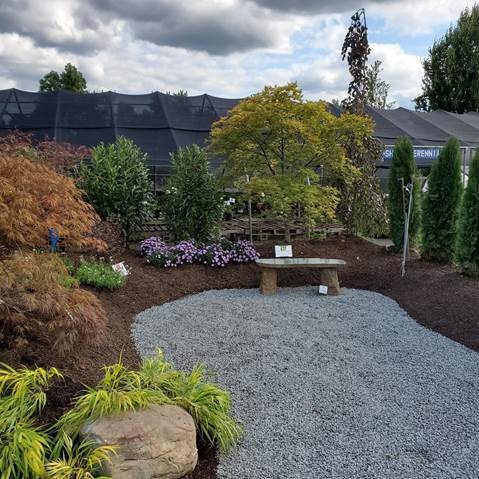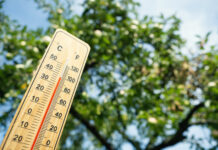A neat and tidy garden or landscape requires more than just watering and pruning. One important aspect to consider is mulching, a technique that can significantly impact the health and appearance of your outdoor space. Here are some benefits of mulching and tips for effectively using it in your gardening routine courtesy of Down to Earth Living.
A well-maintained garden is a delight to behold, with vibrant colors, lush foliage, and thriving plants. But achieving and maintaining a healthy garden requires more than just regular watering and pruning. One often overlooked yet crucial element in garden care is mulch. Mulch is a protective layer of material, typically made from organic or inorganic matter, that is spread over the soil surface around plants. It offers many benefits, making it an essential component of any successful garden.
Conservation of Moisture
One of the primary functions of mulch is to help conserve moisture in the soil. Mulch acts as a natural barrier, reducing evaporation from the soil surface and minimizing water loss due to wind and sun exposure. This is especially important during hot, dry periods or in regions with limited rainfall. By conserving moisture, mulch helps to keep the soil consistently moist, providing optimal growing conditions for plants. This can reduce the need for frequent watering, saving time and water resources while also promoting healthy plant growth.
Weed Control
Mulch is also an effective tool for weed control in the garden. When applied correctly, mulch forms a barrier that inhibits the growth of weeds by preventing sunlight from reaching the weed seeds. This prevents weed seeds from germinating and establishing themselves in the soil. Mulch also makes it easier to pull out any weeds that do manage to sprout, as they are less likely to be deeply rooted in the soil. This reduces the need for chemical herbicides or labor-intensive weeding, making mulch an eco-friendly and time-saving option for weed control.
Soil Improvement
Mulch plays a crucial role in improving soil health. Organic mulches, such as wood chips, straw, leaves, or grass clippings, gradually decompose over time, enriching the soil with essential nutrients. As the mulch breaks down, it releases nutrients, such as nitrogen, phosphorus, and potassium, which are essential for plant growth. These nutrients are then absorbed by plant roots, promoting healthy root development and overall plant growth. Additionally, as mulch decomposes, it adds organic matter to the soil, improving soil structure, fertility, and microbial activity, which are all critical for healthy plant growth.
Temperature Regulation
Mulch helps to regulate soil temperature, providing a stable environment for plant roots. During hot summer months, mulch acts as an insulating layer, reducing soil temperature and preventing heat stress in plants. In colder months, mulch helps to retain soil warmth, protecting plant roots from freezing temperatures. This temperature regulation is particularly beneficial for sensitive plants, such as perennials and young seedlings, which are more susceptible to temperature fluctuations.
Erosion Prevention
Mulch also serves as an effective erosion prevention measure. When heavy rain or wind occurs, it can wash away soil particles and cause erosion, which can be damaging to the garden. Mulch acts as a protective layer, reducing the impact of heavy rain or wind on the soil surface. It helps to slow down water runoff, allowing it to infiltrate into the soil gradually. By reducing erosion, mulch helps to preserve the integrity of the garden soil, preventing nutrient loss and ensuring a stable growing environment for plants.
Aesthetic Appeal
In addition to its functional benefits, mulch enhances the garden’s aesthetic appeal. Mulch comes in various colors, textures, and materials, allowing gardeners to choose a type that complements their garden design and personal preferences. Mulch adds a neat and tidy appearance to the garden, providing a visually appealing backdrop for plants. It also helps to define planting areas, pathways, and borders, creating a polished and well-maintained look for the garden.

Celebrating its 52nd year, Down to Earth Living Garden Center in Rockland County offers 12.5 acres filled with perennials, flowers, shrubs and trees, with new arrivals coming in every week. The 10,000-square-foot showroom has a large and unique selection of contemporary, classic, traditional, and transitional teak, aluminum and all-weather dining and deep-seated furniture. The center is open 9:00 am – 5:00 pm daily and is located at 1040 Route 45, Pomona, New York. The business is a short distance from Bergen County and is an easy trip from Routes 9W, 17, the Palisades Interstate Parkway, and the Garden State Parkway.







